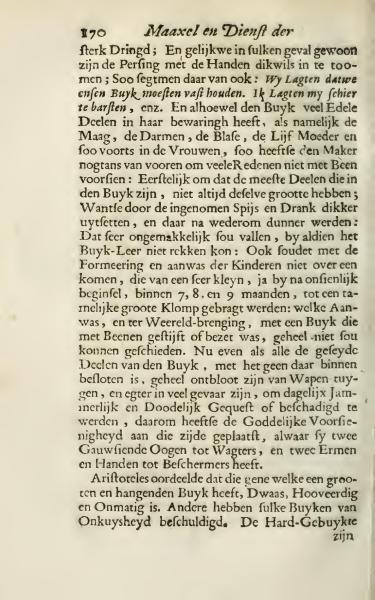Strong urges; and as we normally do in such cases, we often tame the pressure with our hands; so it is said: We sometimes had to hold onto our bellies. I felt like I was about to burst, and so on. And although the belly contains many noble parts, namely the stomach, the intestines, the bladder, the womb in women, and so forth, for many reasons, the front is not protected by bone: Firstly, because the parts within the belly do not always have the same size as they swell with consumed food and drink, and then shrink again. This would be very inconvenient if the belly's skin could not stretch. Also, the formation and growth of children would not be possible, coming from a very small, almost invisible beginning, to a quite large mass within 7, 8, and 9 months. This growth, and the act of coming into the world, with a belly that is not reinforced or shielded with bone, would not happen. Now, even though all the parts of the belly are not enclosed inwardly, they are completely deprived of protective armor, and hence are in great danger daily, of being pressed or damaged harmfully and lethally. Therefore, divine wisdom has placed swiftness on either side, where it has appointed two quick-seeing eyes as guards, and two arms and hands as protectors.
Aristotle judged that those who have a large and hanging belly, are foolish, haughty, and excessive. Others have accused such bellies of laziness. The hard-bellied are...
The text discusses the function and importance of the human belly, emphasizing how it houses vital organs and allows for growth during pregnancy due to its natural stretchability. It notes the vulnerability of the belly, lacking bone protection, and describes the natural human anatomy suggesting divine protection through bodily features like hands and eyes. Additionally, the text shares Aristotle’s opinion on the character of individuals with large bellies.
